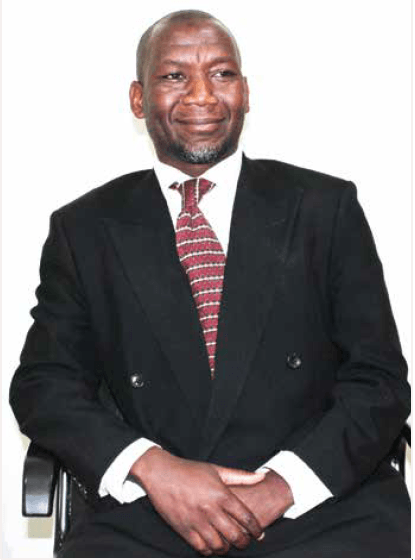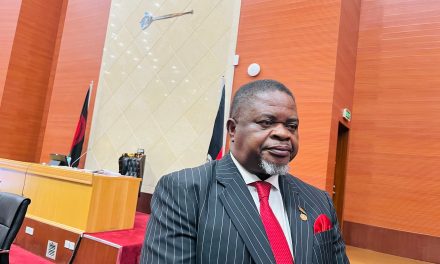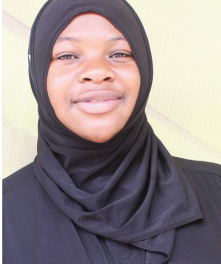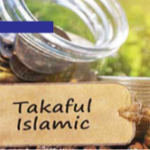
Why are Muslim Girls Denied Education Because of Headscarf?

The tendency of denying many Muslim girls and even those women working in either public or private institutions to put on the religious headscarf is very worrying.
It started at Queen Elizabeth Hospital with students from College of Medicine who were being denied dressing of such a gear until the matter came to an end when government accepted that those interested should dress headscarf which is white in clour just like their uniform.
I wonder why, Mama Khadija Girls Academy which is one of the private schools owned by Muslims in the country operating under Grant Aided Schools (GAS) Government decided to transfer its teachers elsewhere claiming that the school has violated conditions governing the agreement in the Government Grand Aided Schools because its pupils were wearing religious headscarf.
Surprising with the decision, the local community took an injunction against government’s decision of transferring teachers. The community further blamed some people in the authority of double standards. This meant that teachers remained at the school until further discussions between the two parties were exhausted.
This is not the first time the issue of headscarf has come on spot light in Malawi. Local residents from Mangochi requested the removal of two civil servants that included Muwake who was accused of chasing Muslim teachers who wear Hijab in schools in his area of control despite the fact that the region is predominantly Muslim and championing the teaching of Bible Knowledge instead of Religious knowledge with double shifts in primary schools hindering the madrassah lessons that are always conducted in the afternoon.
As if the above is not enough, I remember in Zomba, a standard 8 pupil was denied access to education just as the Chichiri Secondary has done in the month of October denying some girls from entering into the class just because of wearing a headscarf. The question one would ask is that can a teacher fail to teach just because one of the pupils is putting on a headscarf?
The country moved from one party rule to democracy in 1994 .The coming of democracy to Malawi removed several restrictions that were there during the one party system including the wearing of Hijab, selective selection of learners into secondary schools and universities and many other restrictions.
A “Grant-Aided School” is run in collaboration between the Ministry of Education and the Proprietor, or owner, of the school. In most cases, they are Faith based organisations from the Muslim and Christian communities.
What surprises Muslims is that the implementation of condition of Grant – Aided School agreement is selective; It is always the Muslims who are victims in the end.
Under this agreement, the Malawi Government and people of Malawi regardless of the faith, through the Ministry of Education, provide the basic teachers and pay for their salaries. In addition, some other salaries are provided for secretaries, cooks, maintenance staff, etc. Educational resources such as textbooks are obtained collaboratively with the Ministry. For this reason there is no point of denying any girl from wearing a headscarf.
The letter also says that the dress code infringes on the memorandum of understand between the churches and the government and question the motive behind a single religion (Islam) dictating on what to be done in Christian schools.
“Our head teachers are of the opinion that the implementation of the Dress Code will create more problems in the management of the schools rather than promoting harmony in a conducive learning and teaching environment. Unfortunately, the implementation of dress code has the potential of bringing division and misunderstanding rather than promoting harmony,” reads part of the statement.
Presidential adviser on religion Apostle Timothy Khoviwa refused to comment on the development saying the government is in good position to answer on the matter
Principal of Skyway University Sherif Abubaker Kaisi suggests that there is need for both parties to come together and find the ending solution because if this case is not handled professionally, tension between religions may erupt and that’s not good for the national building. Kaisi further added that many countries experience unending wars because of such challenges.
Hawa Mwamadi a female teacher at government aided school wondered how could religious bodies release such a communiqué when the issue of ban was settled some time ago, “these schools they claim to be theirs are not fully funded by them, they might own a school block structure but we as teachers are paid by Malawians tax through ministry of education and these taxes do not differentiate whether the payee is a Muslim or not so why should there be such discrimination just because of one’s dress? Wondered the teacher. local media reports emerged that some Malawian Muslim women are being forced to remove their head gear to obtain their driving licenses and traffic registration identity cards and even from their working places and learning institutions. The Department of Road Traffic and Safety Services (DRTSS) is said to have issued a statement which said the decision was made after talks were held with the Muslim Association of Malawi (MAM) and an agreement was reached on how to handle Muslim women at the authority’s offices nationwide. “Muslim women may not be required to remove the head gear entirely but they should at least expose necessary facial features for facial recognition,” the statement said. The measures to remove the headscarf had angered the Muslim community who said it violated human rights and a woman’s freedom to choose what to wear. Fatima Ndaila, Muslim Women Organization (MWO) chairwoman, praised government’s move and confirmed reports about women being forced to take off their head gears in government offices, government statutory corporations like Malawi Electoral commission (MEC) National Registration Bureau (NRB) and many other institutions whether government or not. “I have reports in my office of women being asked to remove the veil,” she told Insight magazine. Muslim Association of Malawi (MAM) Secretary General, Alhaji Twaibu Lawe also welcomed the move, saying his organization had worked hard to reach an agreement with the traffic authority. “We have had series of meetings with the agency on this matter and we thank government for heeding to our calls to remove these restrictions,” Lawe told Insight bulletin. The DTRSS is the regulatory arm of Malawi’s Ministry of Transport and Public Works and is the sole agency that issues motor vehicle and driver’s licenses.































